
The South African music scene includes both popular (jive) and folk forms like Zulu isicathamiya singing and harmonic mbaqanga. Other popular genres are marabi, kwaito,house music, pop music, isicathamiya, gqom, rock music, hip hop and amapiano.
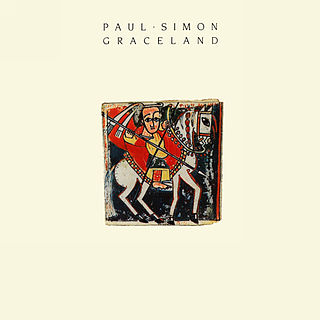
Graceland is the seventh solo studio album by the American singer-songwriter Paul Simon. It was produced by Simon, engineered by Roy Halee and released on August 25, 1986, by Warner Bros. Records. It features an eclectic mixture of genres, including pop, rock, a cappella, zydeco, isicathamiya and mbaqanga, inspired by the music of South Africa.
Mbaqanga is a style of South African music with rural Zulu roots that continues to influence musicians worldwide today. The style originated in the early 1960s, and blends traditional African vocal styles and melodies with European and American popular music.
Marabi is a style of music and dance form that evolved and emerged in South Africa between the 1890s and 1920s.
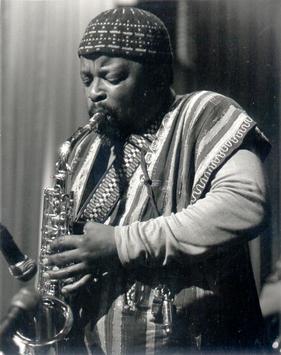
Mthutuzeli Dudu Pukwana was a South African saxophonist and composer.

Savuka, occasionally referred to as Johnny Clegg & Savuka, was a multi-racial South African band formed in 1986 by Johnny Clegg after the disbanding of Juluka. Savuka's music blended traditional Zulu musical influences with Celtic music and rock music that had a cross-racial appeal in South Africa. Their lyrics were often bilingual in English and Zulu and they wrote several politically charged songs, particularly related to apartheid. Some better-known Savuka songs include "Asimbonanga", and "Third World Child", from their 1987 album Third World Child. Band percussionist Dudu Zulu was killed in 1992; their song "The Crossing" was a tribute to him.

Shifty Records was a South African anti-apartheid record label founded by Lloyd Ross and Ivan Kadey in 1982/3, which existed for around ten years.
Mzwakhe Mbuli is a South African poet, Mbaqanga singer and former Deacon at Apostolic Faith Mission Church in Naledi Soweto, South Africa. Known as "The People's Poet, Tall Man, Mbulism, The Voice Of Reason", he is the father of Mzwakhe Mbuli Junior, also known as Robot_Boii.

Mahlathini and the Mahotella Queens were a South African mbaqanga supergroup made up of the three musical acts linked together by talent scout and record producer Rupert Bopape at the Gallo Recording Company in Johannesburg, South Africa in 1964. The group composed of the following three distinct parts:
The Makgona Tsohle Band was a South African instrumental band that is noted for creating the mbaqanga music style. Mbaqanga is an acculturated popular South African music that emerged in the 19th century. Mbaqanga is also referred to as township jive. The group was formed in 1964 at Mavuthela, and became the Mavuthela house band. It garnered success by backing fellow Mavuthela-Gallo stars, Mahlathini and the Mahotella Queens. It is often referred to as the South African equivalent to Motown's The Funk Brothers.
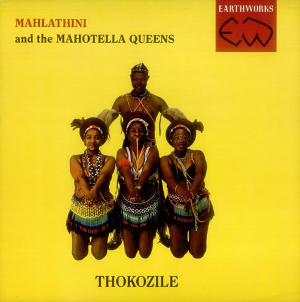
Thokozile is an album by the South African mbaqanga group Mahlathini and the Mahotella Queens, released in 1987. The album was a reunion of Mahlathini with the backing Makgona Tsohle Band and three of the original Queens, Hilda Tloubatla, Nobesuthu Mbadu and Mildred Mangxola. The album featured re-recordings of older songs such as "Umculo Kawupheli" and "Sithunyiwe" ("Thokozile"). The album propelled the group into immediate international stardom when it was issued internationally on the Earthworks label.
Aaron "Big Voice Jack" Lerole was a South African singer and penny whistle player. Lerole was a leading performer in the kwela music of 1950s South Africa. Lerole was the bandleader of Elias and His Zig-Zag Jive Flutes, who had an international hit record in 1958 with "Tom Hark". He co-founded the fusion band Mango Groove in 1984, and later collaborated with Dave Matthews Band, a rock band from the United States.
Roger Lucey is a South African musician, journalist, filmmaker, actor, and educator. In the late 1970s and early 1980s his early career as a musician was destroyed by Paul Erasmus of the Security Branch of the South African Police, because the lyrics to Lucey's protest songs were considered a threat to the Apartheid State. Although already aware of his anti-apartheid songs, the South African Government's security apparatus only swung into action to destroy Lucey's career after he performed a radical song in a programme on Voice of America radio. The criminal methods used against Lucey formed part of the testimony given by Paul Erasmus in front of the South African Truth and Reconciliation Commission.
Township music is any of various music genres created by Bantu peoples living in poor, racially segregated urban areas of South Africa ("townships") during the 20th century.
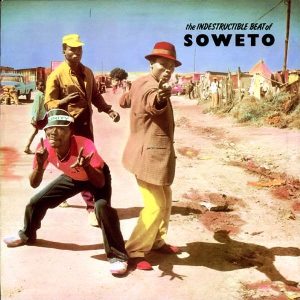
The Indestructible Beat of Soweto, later repackaged as The Indestructible Beat of Soweto Volume One, is a compilation album released in 1985 on the Earthworks label, featuring musicians from South Africa, including Ladysmith Black Mambazo and Mahlathini. In 2020, it was ranked number 497 on Rolling Stone's 500 Greatest Albums of All Time.
Jaiva, Township jive (TJ), Soweto jive, Soweto sound or Soweto beat is a subgenre of South African township music and African dance form that influenced Western breakdance and emerged from the shebeen culture of the apartheid-era townships.
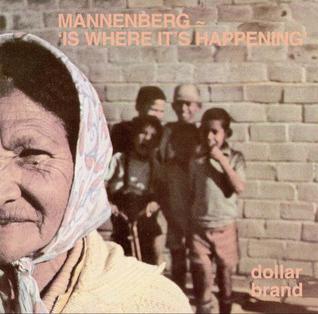
"Mannenberg" is a Cape jazz song by South African musician Abdullah Ibrahim, first recorded in 1974. Driven into exile by the apartheid government, Ibrahim had been living in Europe and the United States during the 1960s and '70s, making brief visits to South Africa to record music. After a successful 1974 collaboration with producer Rashid Vally and a band that included Basil Coetzee and Robbie Jansen, Ibrahim began to record another album with these three collaborators and a backing band assembled by Coetzee. The song was recorded during a session of improvisation, and includes a saxophone solo by Coetzee, which led to him receiving the sobriquet "Manenberg".
Tofo Tofo Dance Group is made up of three Mozambican men who integrated kwaito music and pantsula dance, which originates from South Africa, to create their own unique type of dance that has become internationally celebrated. This new form of movement has brought local African dance onto a global stage.
Strike David Vilakazi was a South African vocalist, drummer, trumpeter, composer, and music producer. He was known for composing the anti-apartheid song "Meadowlands", and for his career as a producer, during which he was influential in the development of mbaqanga.

Mbaqanga is an album by the South African musical group Mahlathini and the Mahotella Queens, released in 1991 and in the US in 1992. The group supported the album with a North American tour.










